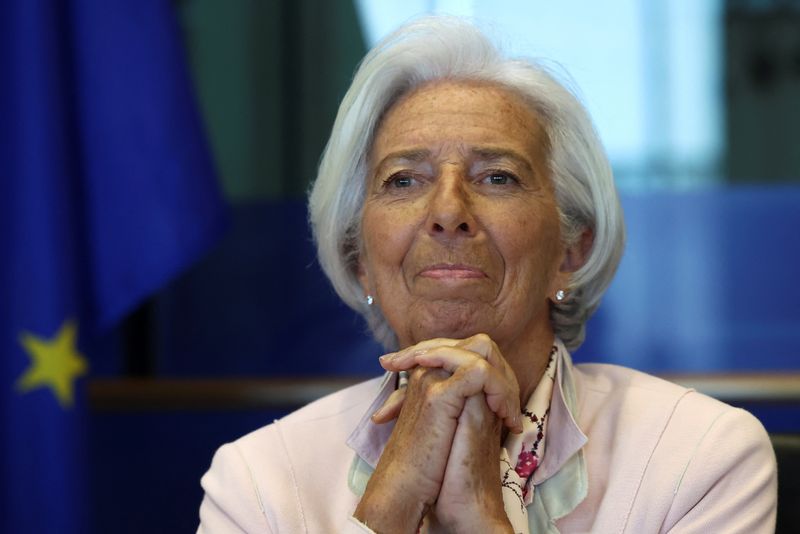By Balazs Koranyi and Francesco Canepa
FRANKFURT (Reuters) -The European Central Bank is increasingly confident that inflation will fall to its 2% target and this will be reflected in its next policy move, the bank’s president said on Monday, dropping the clearest hint yet about a coming interest rate cut.
Money market investors ramped up their bets on a reduction in borrowing costs at the ECB’s Oct. 17 meeting after Lagarde’s comments, which follow a string of lower-than-expected readings for economic activity and inflation.
“The latest developments strengthen our confidence that inflation will return to target in a timely manner,” Lagarde told a European Union parliamentary hearing in Brussels. “We will take that into account in our next monetary policy meeting in October.”
Inflation in the 20-nation currency bloc likely fell below the ECB’s 2% target for the first time since mid-2021 this month, a raft of national data suggested.
Lagarde suggested Tuesday’s reading for the euro zone as a whole would also be below the ECB’s “baseline” projections.
The inflation and weak growth data have raised expectations of a 25 basis point rate cut in October, which is now almost fully priced into money markets, up from a 25% probability seen early last week.
Reuters exclusively reported late last week that policy doves at the ECB were preparing to fight for a rate cut next month after a string of weaker-than-expected economic data.
Lagarde also acknowledged the recent run of poor growth readings.
“Looking ahead, the suppressed level of some survey indicators suggests that the recovery is facing headwinds,” she told a regular hearing of the Committee on Economic and Monetary Affairs.

Still, she repeated the bank’s usual line that the recovery was expected to strengthen and rising real incomes should allow households to consume more.
She added that the labour market, the source of some price pressures via rapid wage growth, remained resilient, even if wage growth was moderating and corporate profits were absorbing some pay increases.
(Editing Christina Fincher; Editing by Emelia Sithole-Matarise)
